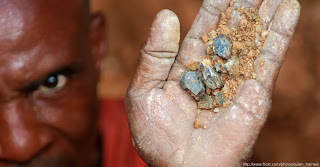Economics Blog #2
By: Alisha Tupchong
November 16, 2009Canadian technology could help China’s housingSummary of the EventThe Alberta Research Council in Edmonton has developed a new technology that creates Oriented Split Straw Board (OSSB), a plywood substitute, by using the residue from cutting wheat straw and removing the grain. This Canadian technology was first discovered in the 1990s, however due to various setbacks which include lack of finance, it is not until now that the use of it has surfaced. The panels are created by compressing wheat straw and adding resin. Its primary use will be for building housing projects that will be not only earthquake-proof, but also very beneficial to the environment, since the wheat straw used will have been agricultural waste. In addition, the technology will reduce carbon emissions and preserve forests, therefore enabling growth and development in those areas. Panel Board Holding Ltd., a Netherlands-based company, is already using the technology at one of its new plants located in Shaanxi, China. Due to China’s need for 200 million new houses within the upcoming 20 years, the demand for this technology will increase dramatically in the near future, especially since China does not have enough trees for large-scale lumber production. OSSB has much potential and can certainly benefit the Canadian economy, largely because of its efficiency in using waste materials and its environmentally-friendly approach. In today’s economy, environmentally-friendly products are in much greater demand, and its demand will continue to grow as people become more aware of the negative long-term impacts of using products or technologies that harm the environment. The market for these products is ever-increasing and so the demand for OSSB will increase. The technology that creates OSSB will benefit the Canadian economy since it is very resourceful and reduces carbon emissions and the need to cut down trees, therefore being more efficient, inexpensive, and preserving of natural resources.
Three Positive Economic StatementsIf the OSSB technology is in high demand in China, then Canada will have more relations with China, allowing it to be closer to one of the most powerful and largest producing countries in the world, and enabling the importing/exporting of goods at a lower cost, since there would be more trade between the two countries, benefitting the Canadian economy since less money would be expended for importing/exporting costs.
If the OSSB technology is in high demand in China, then Canadian companies can have more of their products produced in China because of the continual trade and exchange of goods between the two countries, resulting in lower costs of production for the Canadian companies, hence increased profits, and therefore benefitting the Canadian economy.
If a natural disaster occurs where the wheat supply decreases dramatically, then there will be less supply of OSSB and the price of it will rise, reducing the amount of OSSB purchased from Canada by China, causing a decrease in the amount of goods exported and profit made by the companies producing it, therefore negatively affecting the Canadian economy.
Two Normative StatementsTo better the Canadian economy…
The Canadian company that creates Oriented Split Straw Board should set up and manage manufacturing plants around the world, so that the company can gain international recognition and therefore expand the market to which it caters to.
The company that creates OSSB should expand by allowing stocks to be purchased internationally from it so that more money from other countries is invested into the Canadian company, allowing it to grow and produce more unique products, in addition to increasing the number of trades between Canada and other countries.
Opinion about What Should HappenTo better the Canadian economy, the Alberta Research Council should expand its production of Oriented Split Straw Board by setting up numerous plants in different countries, especially those that are in need of buildings but lack the materials more commonly used in making them. For countries like these, there will be a large demand for OSSB since it is highly resourceful – its use of agricultural waste saves money and makes a profit out of something that would usually have been thrown out. China, especially, is looking for products like this to help rebuild the thousands of houses and buildings that were destroyed from the earthquake earlier on in 2009. Manufacturers are always looking for ways to make their products more efficient, and with technology such as this that uses waste to make such important things as houses, the demand for it will most certainly remain high. By opening up plants around the world, the company becomes internationally known; therefore, expanding its market and generating more profit as countries look to have the technology available for them. Houses are basic necessities and not luxury items, so the OSSB product should remain relatively inelastic, meaning that the companies producing them should not see a huge fluctuation, or change, in the market of how much is purchased when the price changes. Due to this relative inelasticity and the fact that houses are in shortage in many countries, people are more willing to purchase stocks from the company since there is profit to be made when countries look to use the technology. As more people invest in the company, it grows and is able to expand by opening up even more plants and/or coming out with new products. The Canadian economy will benefit from this expansion, since more trade and interactions will occur between Canada and other countries, which may result in cheaper importing/exporting costs and more international goods available in Canada. In short, the Canadian economy will be positively affected if the OSSB technology is available in other countries, since the market for it will be larger and more people will want to invest in it because of its growing demand.
Simms, Dave. "Canadian technology could help China’s housing." Canadian Broadcasting Corporation, 9 Nov. 2009. Web. 14 Nov. 2009.
.




